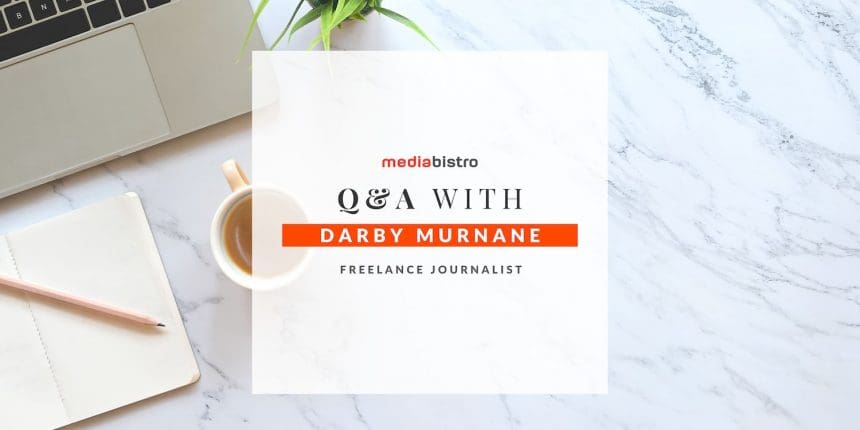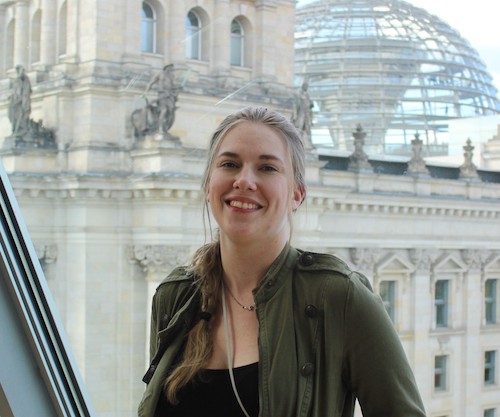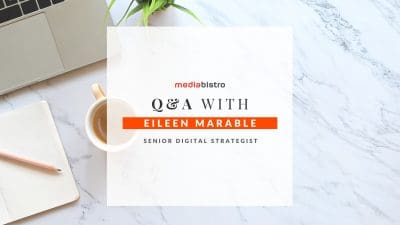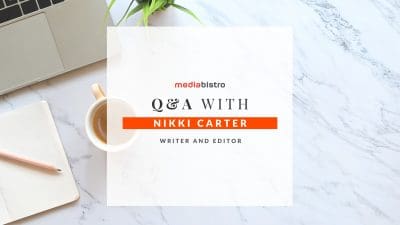
In this Q&A, freelance journalist Darby Murnane shares helpful tips and tricks for navigating the freelance world.
1. Tell me a bit about your freelance journey. How did it start and how did you get to where you are now?
My journey started more recently. I had published some fiction, poetry, and artwork in literary magazines between graduating with my BFA in creative writing in 2020 and starting my master’s degree in journalism later that year but hadn’t immediately tried my hand at what felt like more serious reporting. Imposter syndrome made me hesitant as I moved from student publications to local news outlets, and it was not helped by sudden illness demanding the brunt of my energy and attention. Amid the height of the pandemic and my own health complications, the struggle to work created a sense of distance between myself and my craft as I felt like my identity as a writer was founded upon a consistent output that I couldn’t realistically achieve under those circumstances. I had to ask myself how my experiences could inform my reporting and the beats I pursue to reframe my mindset from one of hinderance to reclaiming and learning.
Also on Mediabistro


I got my first assignment almost by accident at a professional networking event sponsored by my graduate program. While speaking with the food editor at the Dallas Observer, who I now write frequently for, I told her about a new restaurant opening in town, thinking she ought to have dibs as editor. But she responded, “Why would I write about it when you could?” Food writing was new to me, but like any new beat, I was eager for the challenge and excited to use my creative voice in ways hard news doesn’t typically allow. That led to more food stories, assignments from the arts and culture section, and then the news desk. I say yes to everything offered to me.
I’ve since become a go-to freelancer for the Observer, contributing stories ranging from healthcare to LGBTQ+ issues. In December, I’ll be graduating with my masters and hopefully using my growing portfolio of work to get my foot in the door for a full-time staff writing position.
2. What’s your favorite part about your job?
I chose journalism because I love learning and the job allows me to be a perpetual student of every new topic assigned to me. Reporting lets me experience a little bit of everything through the lens of writing. I’ve always had this feeling that I can never possibly know enough about anything, and this job is the best outlet to curb that insatiable curiosity.
As a freelancer, I’m grateful to decide my own hours around my coursework and have more choice in my stories that I initially thought I would. I’ve been incredibly fortunate to work with editors who are receptive to and encouraging of my ideas.
3. What does your day-to-day look like?
My daily schedule consists of juggling classes, coursework, story assignments sent to me and pitching my own. It’s hectic and changeable and not often confined to typical business hours as I have to work around my sources’ schedules for interviews. But I’m able to work from where I please, be it home, campus, or a coffee shop, and I’m never confined to one spot as the nature of this work requires some movement. I’m able to accomplish a lot over the phone, email, or zoom which gives me the flexibility to balance my freelance work with my classes.
4. How do you see the world of freelancing and journalism evolving?
With social media, the way we network and represent our work is changing. I think now every reporter is also their own PR representative in the way we have to build and maintain something of a brand that backs a name that gets assignments. Social media is also diminishing the need for old-fashioned shoe-leather journalism now that you can track down all manner of sources online. I think this digital revolution also means that journalists need to reconsider how we frame and write our stories to avoid feeding into sensationalized trending topics that don’t value context or nuance.
5. What is your advice to aspiring freelance journalists?
Say yes to everything. No assignment at this stage is unworthy because every chance to practice and put your writing out into the word is too valuable. Write about the return of pumpkin spice coffee in August, do the write ups on press releases, all of it. Talk to everybody because you’d be amazed at how one story can lead to another.
6. Anything else you’d like to add:
Learning to advocate for yourself and your skills can feel a lot like arrogance when you’re in the grips of imposter syndrome, but it’s really just acknowledging your own value. When you embark on your first big assignments, the feeling that you don’t know what you’re doing can be paralyzing. Sometimes the way around that is to steer into the feeling and to know that the whole point of writing the story in the first place is to learn and inform. Embracing “I don’t know” is freeing. You stop wasting energy and time trying to compensate for perceived inadequacies that could be used learning and growing.
And learn to ask for help. This is not a job done in a vacuum and the “lone wolf” reporter is a myth. Your editors want you to succeed because they want good stories so don’t kneecap yourself by refusing to ask for help when you need it.

Interested in a creative gig? We have some open jobs for you!










